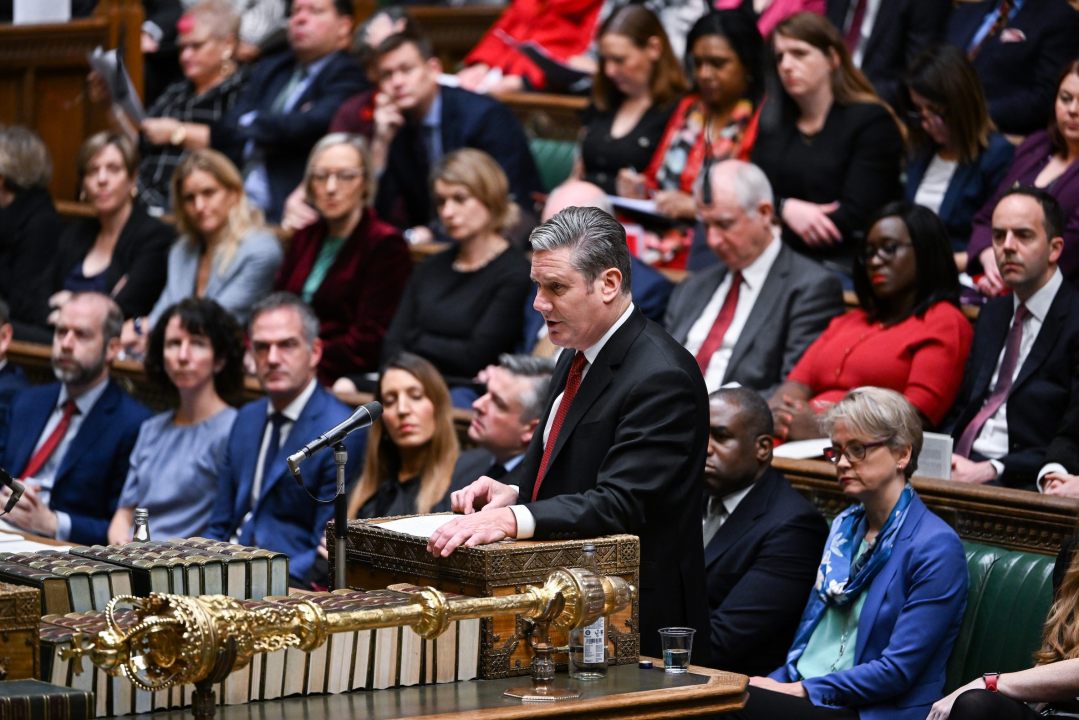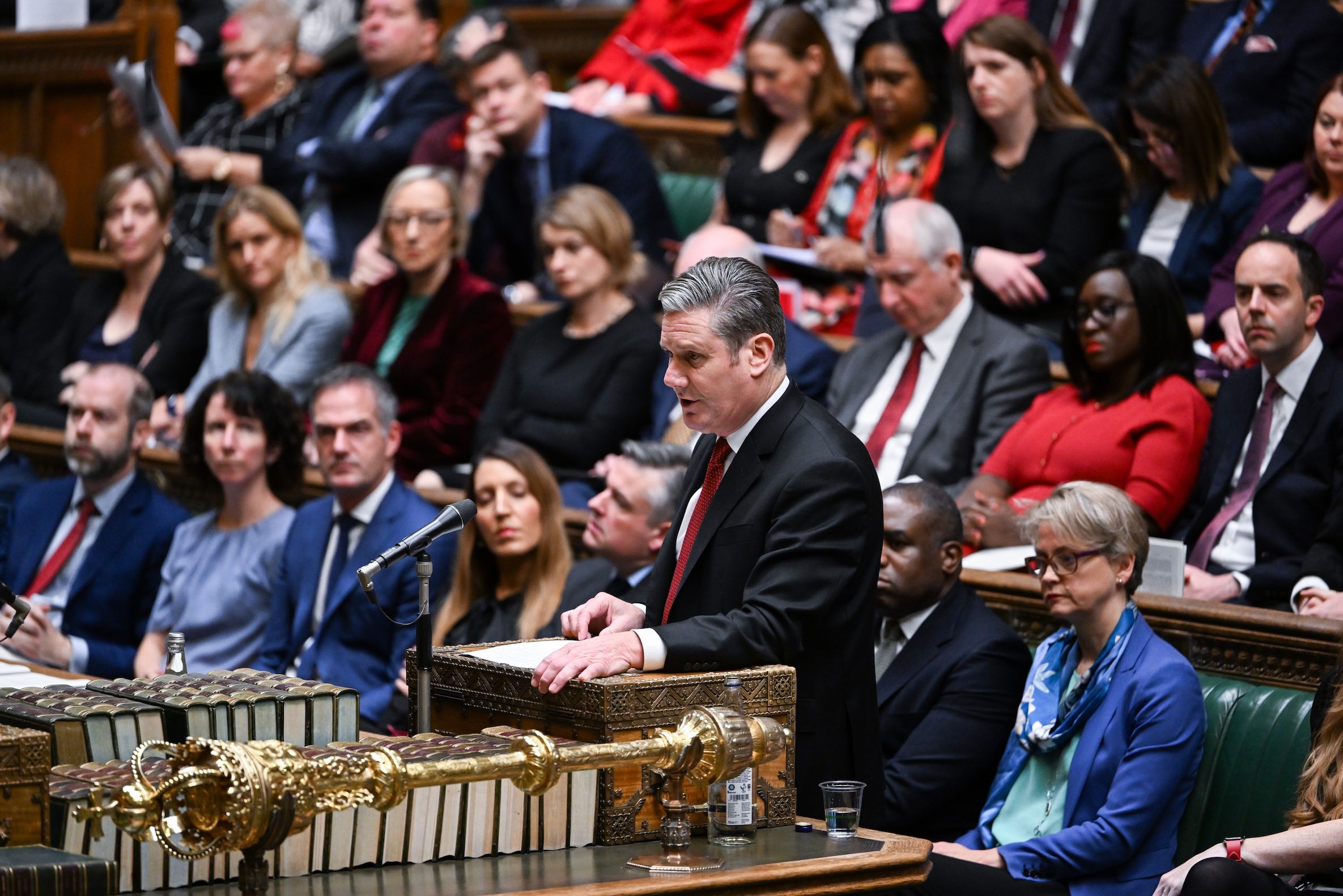Last night, Labour politicians wondered how to respond to the challenges the Chancellor was sending their way. Do you accept the Conservatives’ real-term spending cuts and tax rises? How would you revive the economy?
The best answer came from a shadow minister who told me ‘We should just say “imagine how good this country could be if we had a government that didn’t do mad stuff”.’
We Won’t Do Mad Stuff is not the most inspiring of electoral slogans. For years voters across the West have moved towards Trump-style politicians who promised to do precisely that. Where is the vision in not doing mad stuff? Where is the hope that we can take back control and make Britain great again if we leave the mad stuff alone?
It won’t satisfy journalists or Labour’s opponents, who immediately demanded to know today which of Hunt’s measures the party would oppose. This is a fair question that shadow ministers expected. When I spoke to them last night, they predicted with uncanny prescience how Jeremy Hunt would seek to exonerate the Conservatives and put pressure on Labour.
First Hunt would shift the blame and claim Britain is suffering because of Covid and the Ukraine war. And Hunt did indeed tell the Commons that his austerity measures were a response to an international crisis caused by ‘global factors,’ ‘Putin’s war in Ukraine,’ and a ‘once in a century pandemic’.
In these circumstances, ‘We Don’t Do Mad Stuff’ is not such a bad slogan
Second, Hunt would admit, if only in passing, that Liz Truss and Kwasi Kwarteng bore some responsibility for the ills that afflict the nation, but that there is no need to worry because the grown-ups are now in charge. True to form, Hunt did find a moment to say that their unfunded tax cuts were ‘risky’ before smartly moving on.
Finally, they said, Hunt would set traps for Labour. He would push spending cuts and the squeeze on finances to 2025 and beyond when Labour could expect to be in power. And they were right on that as well.
Opposition politicians remain wary about the opinion polls giving them leads of 15 per cent or more. The collapse in Conservative support is less than three months old. The Tories have a new leader, and Labour has struggled in the past to convince enough voters that it won’t harm their economic prospects. You might think that a Conservative government presiding over eye-watering inflation and falls in real wages would help the opposition. But history suggests that Labour only wins big in good times, when voters feel they can take a risk with the centre-left. It won by a landslide at the end of the second world war in 1945, another at the apogee of post-war optimism in 1966, and again in 1997, when Tony Blair’s election slogan rang true because it truly felt in that naïve time as if ‘things can only get better’.
Keir Starmer and Rachel Reeves believe, as Tony Blair and Gordon Brown believed in the 1990s, that the Tories have destroyed their most valuable electoral asset: their reputation for economic competence. But like Blair and Brown in opposition, they can’t quite believe they are heading for victory.
If by the summer of 2023 the Conservatives are still far behind in the polls, you will be able to say that the settled will of the country is to throw them out. You can also imagine that the civil war in the Conservative party will be back with renewed ferocity – in fact the party’s internal hatreds are stirring again already. But today Labour’s leaders are right to take nothing for granted.
Caution means that Labour will accept whatever forecasts the Office for Budget Responsibility (OBR) makes – it cannot do otherwise after condemning the Conservatives for the disastrous consequences of Kwarteng’s failure to consult the body. But Labour does not think that Hunt’s statement has tied it down. There are more budgets, autumn statements and OBR statements to come before a battered nation goes to the polls. By the end of 2024 the war in Ukraine could be over. Fuel prices may have fallen. We have had three prime ministers and four Chancellors of the Exchequer in 2022, and there’s still time for more. Nobody can say with certainty where we will be in two years’ time.
Above all, we will have endured a dreadful recession. The lesson that Labour only wins in good times is not the only lesson history teaches. Rob Ford, a politics professor at Manchester University, told me that the moral from the past that should most worry Conservatives is that no governing party has ever won re-election within 18 months of presiding over a recession. Crucially, the failure of Trussonomics had broken through, and seared itself into the public mind. Voters blame the government for their pain.
In these circumstances, ‘We Don’t Do Mad Stuff’ is not such a bad slogan. It worked for the Democrats in the US mid-terms when, against all expectations, they saw off election-denying Republicans earlier this month.
Labour can credibly promise to take sensible steps the Conservatives can never contemplate. It can tone down the hard Brexit Johnson negotiated and get a better deal for business. It can allow the building of homes and onshore windfarms Conservative politician dare not authorise for fear of a Nimby backlash. The opportunity Liz Truss gave Starmer and Reeves was the chance to present Labour as the responsible party of government. The caution they display is the clearest sign out there that they intend to take it.
In 2016, as he was persuading voters to support leaving the EU, Michael Gove said ‘I think the people in this country have had enough of experts.’ By 2024 I suspect they will have had enough of mad stuff. Truly, I think they have had their fill already.








Comments